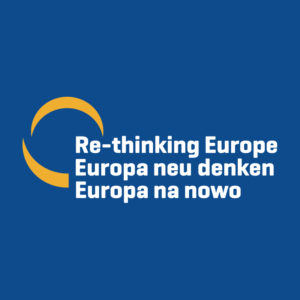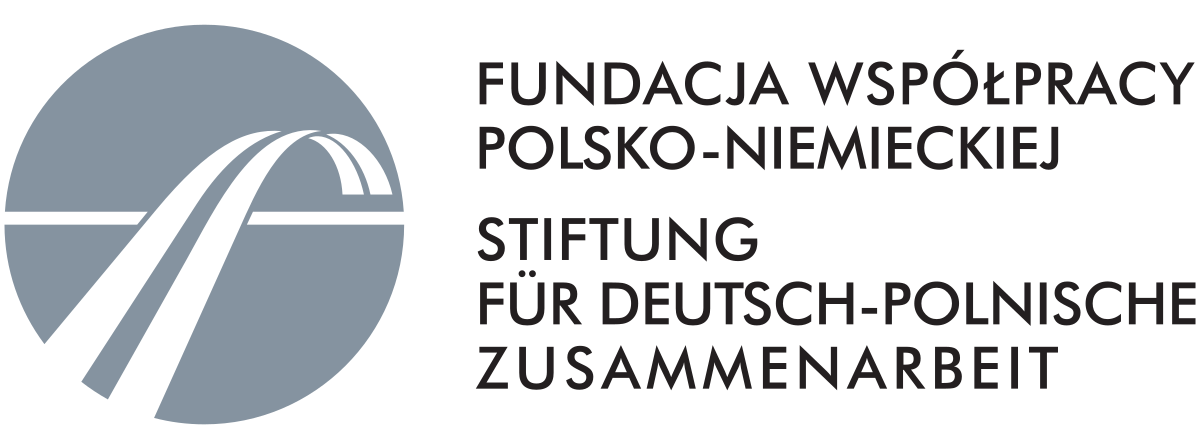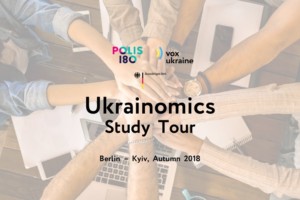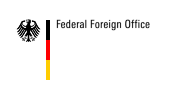A Comment by Britta Gade
 Polis180
Polis180
COP24: Eine Analyse der UN-Klimakonferenz in Katowice
Anfang Dezember wurde im polnischen Katowice das Regelbuch zur Umsetzung des Paris Agreements ausgehandelt. Doch statt der eigentlichen Regeln standen die Unterschiede zwischen den Formulierungen „begrüßen“ und „zur Kenntnis nehmen“ im Zentrum der Diskussionen. Und es wurden blaue Turnbeutel verteilt.
Ein Beitrag von Kerstin Mohr
Trendy Tbilisi: where Georgian fashion meets public diplomacy
Tbilisi has recently become the next trendy destination in Europe, thanks to its dynamic cultural life. The growing fashion scene has helped to bring new kinds of visitors to a country that was mostly known to adventurous hikers. In the context of its European integration process, promoting and investing in attractive industries could be an innovative way for Georgia to demonstrate its Europeanness and foster exchange – with taste!
A Comment by Lorraine Vaney
19 NOV | Polis kocht! Innovationen in der Landwirtschaft
Beyond top-down democratisation: protests of Georgian students, ‘ravers’ and workers
A Comment by Tornike Bakakuri
#womenps Report | Women, Peace and Security in Georgia and Ukraine
Polis kocht! Zivilgesellschaft in Russland und Osteuropa: Salz in der Suppe oder Dorn im Auge?
Café Amerikana – Die Zukunft der transatlantische Beziehungen: Rocky Road oder Cookies and Cream?
22 AUG | „Polis kocht! Brexit and the Irish Border: Strong and Stable or a British nightmare“
#GEOEUvalues Policy Paper | Normative Power vs. Democratic Backsliding
Midterm Elections 2018: Die Ergebnisse exklusiv zusammengefasst
Ein Beitrag von Esther Kern, Felix Stoßmeister und Laura Menzel
2 OKT | Feministische Perspektiven auf Tunesiens Transformationsprozess
„Demokraten haben keine Chance, wenn sie ihre politische Mitte aufgeben”
Ein Interview mit Dr. Constanze Stelzenmüller von Esther Kern & Laura Menzel
Why pulling out of the INF is an astonishingly bad idea
In the discussion about US President Donald Trump’s announcement to withdraw from the INF there are two seemingly contradictory truths. The first one lies in Russia breaching its obligations under the treaty. The second truth is that the US is making a mistake to retreat from the INF nonetheless.
An Opinion by Alexander Sorg
Weshalb im November 2018 die wichtigsten US-Zwischenwahlen seit Jahrzehnten anstehen
Ein Beitrag von Florian Gawehns
Call for Applications: Ukrainomics – Enhance the Economic Debate in Ukraine!
Call for Applications
Ukrainomics – Enhance the Economic Debate in Ukraine!
#Ukrainomics
Polis180 and the Ukrainian think tank Vox Ukraine (Kyiv) are pleased to announce a call for applications for participation in the project
„Ukrainomics“ – Enhance the Economic Debate in Ukraine!
Comprising a meeting in Kyiv (18-20.10.18), a study tour to Berlin (7-11.11.2018) and a workshop in Kyiv (28.11-01.12.18).
The Revolution of Dignity and the War in Donbass have become a catalyst for serious transformations in society. However, Ukraine stil lacks an intensive public discussion of the shortcomings and benefits of the proposed reformist course and its possible alternative options. An evidence-based analysis and an in-depth debate about different options for economic and social policy will improve the quality of economic decisions in Ukraine and have a positive impact on the welfare of millions of Ukrainians. And it is crucial in terms of involving the population in the process of reform.
The idea of the project is to explain different economic views and concepts to the Ukrainian public and to involve representatives of academic and civil society, as well as the public, in their discussion. Within the framework of a study tour to Berlin and a workshop in Kyiv, we strive to look at the key problems of the Ukrainian economy from different perspectives, reasonably considering all the pros and cons of specific decisions. And also we would like to promote citizens‘ opportunities to forming and expressing their opinions on different matters related to the reforms.
Read more about the project here.
Who can apply?
We invite young economists (or graduates of neighbouring fields, e.g. sociology, politics, law), experts, economic/civil society activists and public servants from Ukraine to take part in a study trip to Berlin. You will have the opportunity to explore the German transformational experience and meet representatives of various organizations with very diverse perspectives on the economy. After the study tour, participants will produce short video clips (under instruction from media professionals) that reveal different concepts and views on important and controversial economic issues. English is the working language of the project, but videos will be produced in Ukrainian with English subtitles.
How to apply?
- Please fill in the online form: goo.gl/forms/8EfCV5IwAT9yQYal2
- The application deadline is 12 October 2018
- For more information on the application process, please contact Ewa Dąbrowska, ewa.dabrowska@polis180.org or Yulia Mincheva, y.mincheva@voxukraine.org
Project term
01 September – 31 December 2018
Our supporters
The project is funded by the German Federal Foreign Office in the framework of the programme “Expanding Cooperation with Civil Society in the Eastern Partnership Countries and Russia”.
Die prekäre Lage der Republikanischen Partei
Ein Beitrag von Orchan Ali-sade
15 AUG | POLIS KOCHT! Frauen & Landwirtschaft in der Entwicklungspolitik
23 JUN | Allez l’Europe: Workshop zu deutsch-französischer Verteidigungskooperation
AUSSCHREIBUNG // EUROPA NEU DENKEN – EUROPA NA NOWO
AUSSCHREIBUNG
Workshopteilnahme EUROPA NEU DENKEN – EUROPA NA NOWO

Seit der Unterzeichnung des Nachbarschaftsvertrages 1991 stand es um die polnisch-deutschen Beziehungen nicht schlechter. Insbesondere die deutsche Migrationspolitik sowie der Umgang mit Russland sind in der polnischen Gesellschaft hoch umstritten, während in Deutschland die Politik der PiS-Regierung und deren Entfernung von europäischen Werten auf Unverständnis stößt. Viele dieser Themen sind in erster Linie europäisch, belasten aber insbesondere die bilateralen Beziehungen zwischen Polen und Deutschland.
Um den polnisch-deutschen Beziehungen im europäischen und bilateralen Kontext eine neue Perspektive zu geben, organisiert Polis180 zusammen mit Global.Lab (Warschau) einen 1,5-tägigen Workshop unter dem Titel „Europa neu denken – Europa na nowo“. Stattfinden wird der Workshop vom
9. bis 10. November in Warschau
(Reise- und Übernachtungskosten werden übernommen)
Nach einer kurzen Bestandsaufnahme, in der verschiedene europäische Politikfelder und deren Bedeutung für die deutsch-polnische Zusammenarbeit beleuchtet werden, erarbeiten wir gemeinsam konkrete Handlungsempfehlung. Ziel ist es Potenziale für gemeinsame Projekte sowie Politikempfehlungen zu identifizieren. So wollen wir eine deutsch-polnische Agenda für die Zukunft formulieren. Die Handlungsempfehlungen werden im Anschluss an den Workshop in einem gemeinsamen Policy-Paper veröffentlicht.
Wer kann sich bewerben?
- Du bist zwischen 20 und 35 Jahren alt
- Du bringst Interesse und Vorkenntnisse zu deutsch-polnischen Beziehungen mit
- Verfügst über sehr gute Sprachkenntnisse in Englisch
Wie kannst du dich bewerben?
Bitte verfasse ein Motivationsschreiben (max. 1 Seite), in dem du dein bisheriges Engagement im deutsch-polnischen Kontext beschreibst und die folgenden Fragen beantwortest:
- Warum möchtest du an dem Projekt teilnehmen?
- Was ist deiner Meinung nach das dringendste Problem der polnisch-deutschen Beziehungen?
- Welche Themen sollten in Gesprächen momentan besser ausgeklammert werden?
Sende bitte dein Motivationsschreiben und deinen CV unter Angabe deines vollen Namens in der Betreffzeile an susanne.zels@polis180.org.
Die Bewerbungsfrist endet am 17 September.
************
Das Projekt wird gefördert durch


Ausschreibung: deutsch-russischer demoSlam in Jekaterinburg
Apply now! Women, Peace and Security Workshops in Kyiv & Tbilisi #womenps
Polis kocht! Chancengleichheit für geflüchtete Frauen auf dem Arbeitsmarkt
Workshop | Reproduktive Rechte in Europa: Einen Schritt vor, zwei zurück?
Ein General als Chance: Warum die deutsche Außenpolitik auf James Mattis setzen sollte
Ein Beitrag von Felix Stoßmeister
Recap: Storytelling Workshop for Polis Members
UK Pen Pal: A Candid Correspondence on Brexit
A Correspondence between James Hall and Ulrich Czeranka

